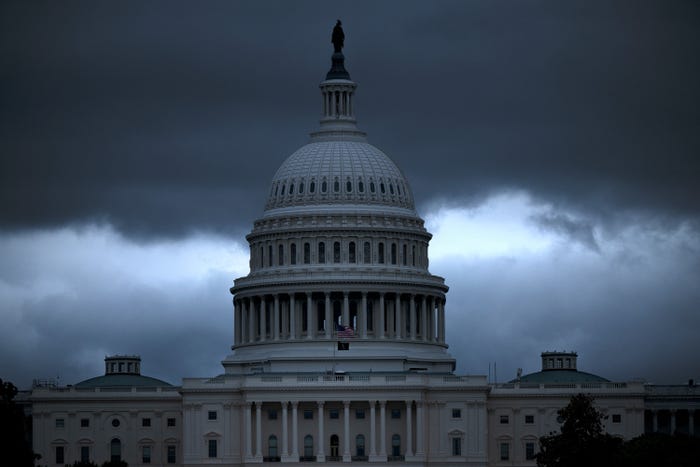Federal Workers Face Tough Payday as Government Shutdown Continues

Federal workers are grappling with a challenging payday as the government shutdown extends into its second week. Approximately 658,000 employees are receiving partial paychecks this week, but the amounts are significantly reduced due to the ongoing appropriations lapse. The uncertainty surrounding back pay for furloughed workers adds to the anxiety felt by many in the federal workforce.
The current paychecks reflect earnings from a pay period that began on September 22—before the shutdown commenced on October 1. Workers will not receive compensation for the days between October 1 and October 3, leading to a cumulative loss equivalent to about 197,000 full paychecks across various federal agencies, according to the Bipartisan Policy Center.
Workers Struggle with Financial Uncertainty
Mark Cochran, a furloughed employee of the National Park Service in Pennsylvania and president of AFGE Local 3145, expressed the financial strain many are experiencing. “A lot of us are living paycheck to paycheck, like most Americans, but even more so now we have to be cognizant of where every penny is going,” he stated. The prospect of ongoing financial challenges has prompted many employees to reconsider their spending habits significantly.
The shutdown has resulted in disruptions not only to federal employee pay but also to critical economic data and government services. While the broader public may not have yet felt the full impact, this is expected to change as the situation persists.
Jill Hornick, who has worked for over 30 years at the Social Security Administration and serves as the administrative director of AFGE Local 1395, is taking proactive measures to assist her colleagues. She is exploring the possibility of organizing food drives for federal workers facing hardship. “If it goes long enough, I won’t be able to afford to pay for my medical expenses or medications,” she said, highlighting the dire situation many are facing.
Immediate Financial Assistance and Long-Term Concerns
The fallout from the shutdown has led some workers to delay major purchases or rethink their financial strategies. One employee from the Department of the Interior noted that they have been pulling back on contributions to retirement accounts to prioritize mortgage payments. Another NOAA employee reported that a potential mortgage loan approval fell through due to the uncertainty of their paycheck.
As the shutdown continues, military personnel face similar challenges. Active-duty members, including those in the Marine Corps, are concerned about sustaining their families. A sergeant spoke about the struggles some of his fellow service members are facing: “There are a lot of Marines who sign up because they want to help support their families. They’re sending money back home, and money’s not coming in anymore.”
While federal employees traditionally receive back pay once the shutdown concludes, the current climate raises questions about this guarantee. The Trump administration has suggested that furloughed workers might not be entitled to back pay, despite legislation passed in 2019 that appeared to ensure it. “The Democrats’ decision to shut down the government over free health care for illegal aliens is hurting all Americans,” said Abigail Jackson, a spokesperson for the White House.
In response to the financial distress, organizations like USAA have stepped in to offer support. The military-focused financial institution reported that it has approved nearly $85 million in interest-free loans for impacted federal workers within 24 hours of launching its assistance program. Similarly, the Maryland Department of Labor received over 300 applications for federal worker loans in just three days.
As uncertainty looms, many federal employees are turning to external help. “People are scared. They don’t know how they’re going to pay their bills. They don’t know how they’re going to put food on the table,” Hornick stated. The current circumstances have pushed some to inquire about unemployment benefits and food assistance programs, reflecting the urgent need for support in a challenging financial environment.
As the government shutdown continues, the financial burden on federal workers is likely to increase, prompting calls for swift resolution and support for those impacted.






